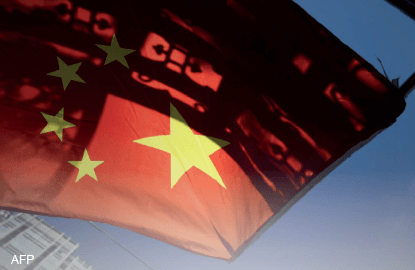
SINGAPORE (June 27): The UK’s exit from the EU on Thursday is estimated to cut 0.2 percentage points off China’s real GDP growth in 2016, resulting in a drop in growth to 6% for the year, according to Nomura.
Growth in China is expected to drop even though the UK is a relatively small trade partner to China, with Chinese exports to the UK representing just 2.6% of total exports in 2015.
Meanwhile, the UK is neither an important source of foreign direct investments to China, contributing just 0.4% of total FDI in 2015, nor is it a vital destination for Chinese direct investment overseas.
Nevertheless, here are four reasons why Brexit still matters to China, according to Nomura:
EU drag
The UK may not be a big trade partner to China, but the EU certainly is, with the region accounting for some 16% of China’s total exports. According to Nomura, Brexit could cut GDP growth in the euro area by at least 0.5 percentage points in 2017.
That’s expected to add pressure to sluggish external demand for China-made products. In the first five months of 2016, exports contracted by 6.9% yoy compared to growth of 0.3% over the same period in 2015.
Capital outflows
Uncertainty is expected to rise in financial markets, triggering capital outflows from China and other emerging economies into safer assets such as gold and US Treasuries.
Funds were already leaving China before Brexit due to concerns over the growth slowdown and fears of RMB depreciation. As such, Brexit could accelerate the outflows, leading to currency volatility and more restrictive capital controls.
Volatile stock markets
Jittery markets are to be expected given that Brexit came as a surprise to many market watchers. As China’s equity market is now more connected to international markets, it is “unlikely to be spared from any global volatility,” writes Nomura.
“With the Chinese equity market still trying to cope with the sharp selloff in mid-2015, any further Brexit-driven weakness will hit sentiment hard in some areas of the real economy such as property sales or fixed asset investment,” it adds.
Currency weakness
Now that the pound and euro can be expected to weaken against major currencies including the renminbi, speculation over the Peoples’ Bank of China stepping in to devalue the currency has risen.
“That said, we believe it unlikely that policy makers will devalue RMB aggressively. Therefore, the real effective exchange is likely to appreciate, posing further stress to China’s exports,” writes Nomura.
However, more policy easing by the PBOC may be on the cards. Nomura is calling for three 50 bps cuts to China’s reserve requirement ratio and a 25 bps cut to the interest rate this year.